In this comprehensive guide, I will explore the top 10 foods for a healthy gut. A well-functioning digestive system is essential for overall well-being and vitality. By incorporating these nutrient-rich and gut-friendly foods into your diet, you can naturally promote digestive health and support a balanced gut microbiome. Let’s dive into the world of gut-healthy foods and discover the benefits they offer.
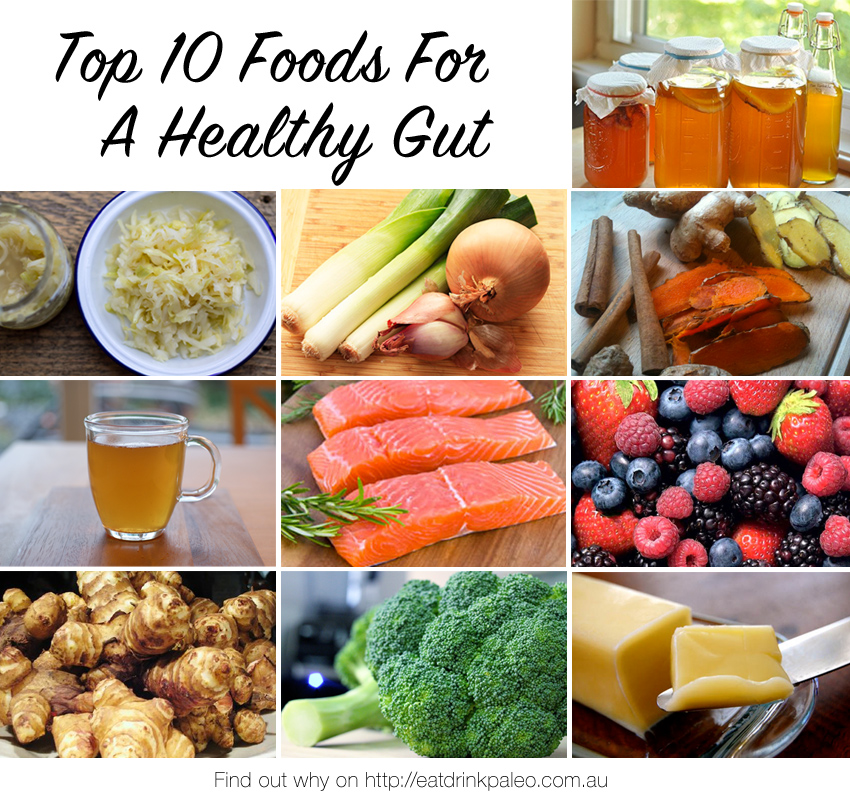
Remember those Raw Mixed Berry Tarts recipe we featured recently. Well, its creator Larina Robinson is more than just a foodie! She is an experienced nutritionist and whole food dietitian (based in Sydney) and runs The Body Dietetics website – on all things health, nutrition and wellness inspiration. We’re pleased to have her back on the site and this time in her capacity as a nutritionist. She has put together the best foods for our gut health because let’s face it, that’s where good health and wellbeing start.
Importance Of Gut Health
Gut health is critical for overall health. It’s the hub of our immune system, where we digest and absorb the nutrients from the food we eat and plays a role in our mood and energy levels too. A whole food diet filled with a variety of fresh produce is always going to be a great start to good gut health, but there are a few star ingredients that can really help keep your tummy happy.
Top 10 Healthy Gut Foods
Fermented Foods
Fermented foods like sauerkraut, kimchi, yoghurt and kefir are rich in beneficial bacteria known as probiotics. These probiotics help restore and maintain a healthy balance of gut bacteria, supporting digestion, nutrient absorption, and overall gut health. Regular consumption of fermented foods can improve gut function and may even boost the immune system.
Kombucha
A fermented tea using a symbiotic colony of bacteria and yeast to produce beneficial probiotic compounds. You can buy it in stores, or make your own at home with a SCOBY starter. Learn how to here.
Sauerkraut
A traditional preservation method using salt or a culture starter to preserve cabbage. It has taken a recent spotlight in the health world for its probiotic benefits. The cabbage is fermented by lactic acid bacteria which breaks down the natural sugars in the cabbage and leaves behind compounds beneficial in overall gut health. Learn how to make your own sauerkraut.
If you don’t like cabbage that much, try one of the mixed vegetable blends available that include carrot, beetroot, onion or sea vegetables. Check out my fermented beets and cauliflower with dill.
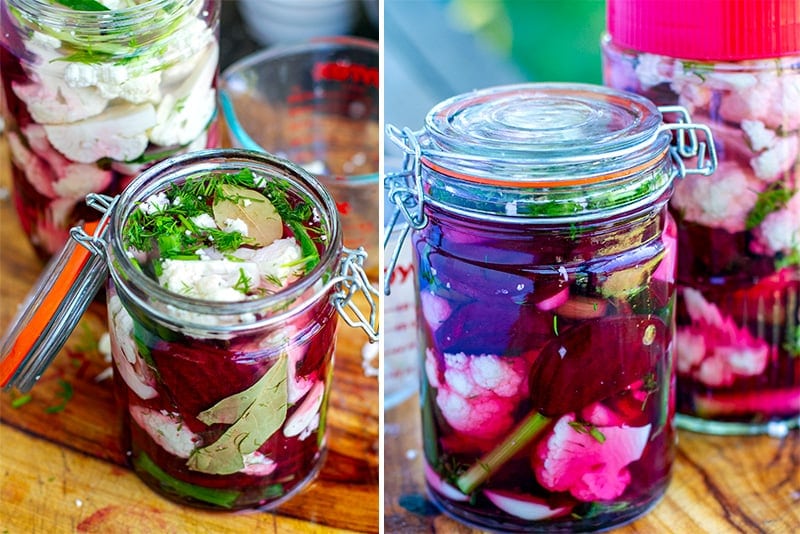
Prebiotic-Rich Foods
Foods rich in prebiotics, such as onions, garlic, and bananas, contain indigestible fibers that serve as food for the beneficial bacteria in your gut. By nourishing these bacteria, prebiotics help them thrive and support a diverse and balanced gut microbiome. This, in turn, aids digestion, enhances nutrient absorption, and can contribute to a stronger immune system. Try my garlic chicken soup or fennel pork chops with onions and apples.
Jerusalem Artichokes
Jerusalem artichokes are especially high in inulin, a prebiotic, indigestible fibre that feeds our gut bacteria. Inulin is fermented in the colon forming a compound called butyrate as a byproduct. Butyrate has been shown to improve the health of the intestinal barrier and also have an anti-inflammatory effect. Try my nourishing Jerusalem artichoke and carrot soup.
High-Fiber Foods
Whole grains, legumes, and chia seeds are excellent sources of dietary fiber. Fiber acts as a natural bulking agent, promoting regular bowel movements and preventing constipation. Additionally, fiber acts as a prebiotic, feeding the beneficial gut bacteria and fostering a healthy gut environment. High-fiber foods also help you feel fuller for longer, supporting weight management. Try my lentil mushroom stroganoff, which is full of fibre and plant-based protein.
Leafy Greens
Leafy green vegetables, such as spinach, kale, and Swiss chard, are packed with fiber, vitamins, minerals, and antioxidants. The fiber in leafy greens promotes regular bowel movements and supports the growth of beneficial gut bacteria. The vitamins and minerals they provide help maintain a healthy gut lining and support overall gut health. Try my cheesy leafy green salad here.
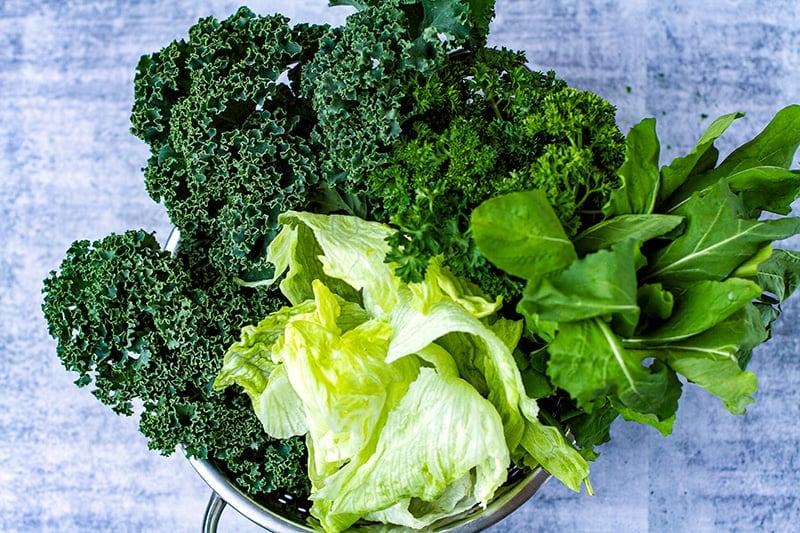
Herbs and spices
Never underestimate the power of herbs and spices to heal and nourish the body. Gut-loving herbs and spices such as turmeric, ginger, coriander, and cinnamon are all anti-inflammatory, antiviral, and antibacterial helping to soothe our digestive system and support our immune system to function optimally.
Ginger
Ginger has long been used to aid digestion and alleviate gastrointestinal discomfort. It possesses anti-inflammatory and antimicrobial properties that can help reduce digestive inflammation and soothe the gut. Ginger also promotes the release of digestive enzymes, facilitating efficient digestion and nutrient absorption.
Berries
Berries, including blueberries, strawberries, and raspberries, are rich in antioxidants and fiber. Antioxidants help reduce inflammation in the gut, while fiber supports regular bowel movements and feeds the gut bacteria. The combination of antioxidants and fiber in berries contributes to a healthier gut environment and supports optimal digestion.
Salmon
Perhaps my ultimate ‘superfood’, protein and omega-3 rich, anti-inflammatory salmon helps with the management of inflammation in the body and repair of our cells that line our gut wall. Salmon also contains bioactive protein molecules that researchers are studying for their support of insulin effectiveness and control of inflammation in the digestive tract. It also contains selenium, associated with the prevention of colorectal cancer!
Try my salmon and avocado nori rolls, baked salmon loaf, or this orange teriyaki salmon. On the budget, try one of these canned salmon recipes and ideas.
Gelatin
The highest concentrations typically found in the parts of animal products that we throw away – skin, cartilage, bones etc. Gelatin can strengthen our gut health by enhancing gastric acid secretion and restoring the lining of our stomach. As it absorbs water, it also helps to keep fluid on our digestive tract, assisting with healthy bowel motions.
In addition, regular muscle meat contains methionine – too much methionine can increase blood levels of homocysteine – a risk factor for certain chronic diseases such as heart disease and colon cancer, as well as increasing our requirements for folate, B12, B6 and choline.
When we consume the amino acid glycine-rich in gelatin (and muscle meat in smaller amounts), we help to counteract this negative effect of methionine. You can easily get more gelatin in your diet by consuming bone broth or a high-quality gelatin supplement (Great Lakes is the brand I use). Vegetarian paleo-style eaters can increase their glycine intake from fish, leafy greens, pumpkin, cabbage, cauliflower, banana, kiwi fruit, and cucumber too.
Bone Broth
Bone broth is made by simmering bones and connective tissues, resulting in a nutrient-rich liquid. It contains collagen, gelatin, and amino acids like glutamine, which support the health and integrity of the gut lining. These components help soothe and repair the digestive tract, reduce inflammation, and improve overall gut health. Here are some ideas for using bone broth.
Broccoli
Broccoli and broccoli sprouts contain a chemical called sulforaphane that kills helicobacter pylori, the bacteria responsible for peptic ulcers and most gastric cancers.
Eat your broccoli, sprouts, cabbage and Brussels sprouts to help reduce your risk of stomach cancers, and other stomach disorders including gastritis, esophagitis, and acid indigestion.
Try my broccoli & cranberry slaw salad or my everyday side dish of pan-fried broccoli with garlic.
Grass-fed butter
Butter is a source of naturally occurring butyrate in our diets. Butyrate is an important source of energy for intestinal cells. Without butyrate, or with very little supply, intestinal cells die. I always recommend a mixture of healthful, wholesome fats and oils in a general person’s diet, and as some foods ferment in the gut producing butyrate, it’s not as essential to consume as some of the other foods listed. Basically, you don’t need to serve up lashings of butter to benefit.
However, food sources of butyrate may also enhance intestinal barrier function and improve overall gut health. If you’re not into butter, a diet rich in fibre – both soluble and insoluble will help your gut bacteria to produce more of this healthful compound.
Turmeric
Turmeric contains a compound called curcumin, which has powerful anti-inflammatory and antioxidant properties. These properties can help reduce inflammation in the gut and alleviate digestive discomfort. Turmeric also supports liver health, which plays a crucial role in the detoxification processes of the body, indirectly benefiting the gut. Try my turmeric zucchini and coconut soup.
Probiotic Supplements
Probiotic supplements provide a convenient way to introduce beneficial bacteria directly into the gut. These supplements can help restore the balance of gut bacteria, improve digestion, and support overall gut health. Probiotics are especially beneficial after a course of antibiotics or during times of digestive imbalance.
Incorporating these top healthy gut foods into your diet can provide a wide range of benefits, including improved digestion, enhanced nutrient absorption, reduced inflammation, and a stronger immune system.

Larina Robinson is a nutritionist and wholefood dietitian based in Sydney. Larina specialises in addressing food intolerances and strongly believes in an individualised approach to healthy eating. Check out her website and blog The Body Dietetics or her Facebook page for more wellness and good living inspiration.

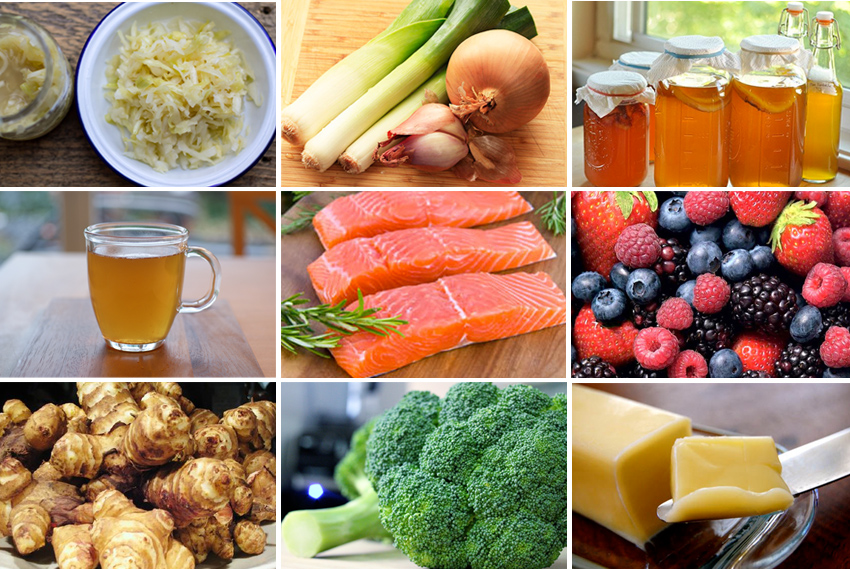


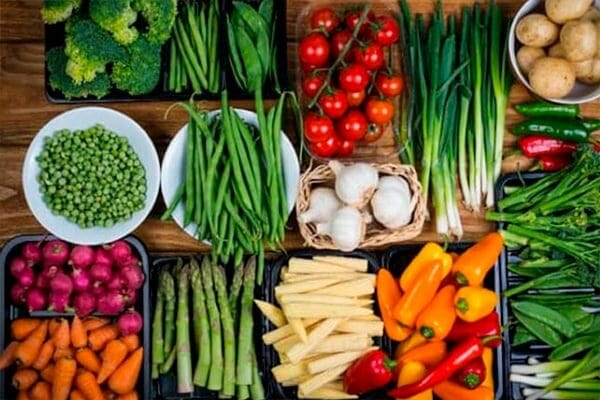
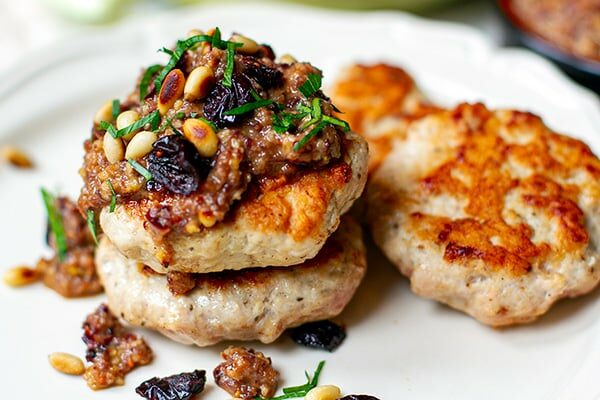

For healthy living it is essential to have healthy digestion..Do keep your digestion good with high fiber foods and healthy bacteria coming from fermented foods..
Some people hate broccoli and can’t stand its smell but I enjoy eating it a lot! It’s really good for health!
I have been having trouble with my intestine, It seems to be sore & I have constipation, fatigue, brain fog.